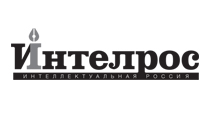
ИНТЕЛЛЕКТУАЛЬНАЯ РОССИЯ
|
|
|
A Critical Juncture for Security and Human Rights
In mid-April 2013, U.S. Southern Command (SOUTHCOM) sponsored a human rights seminar for Guatemalan military personnel. The seminar was one in a series of workshops, subject-matter expert exchanges, dialogues, and events that SOUTHCOM had sponsored in Guatemala since 2004, all under the auspices of a SOUTHCOM-sponsored regional process known as the Human Rights Initiative (HRI).1 HRI events focused on strengthening the Guatemalan military’s human rights performance in the areas of doctrine, education and training, cooperation with civilian authorities, and internal control mechanisms. Unlike previous HRI events, participation in the April seminar by local human rights activists, an indispensable component of all SOUTHCOM’s human rights promotion efforts, was minimal, but for a surprising reason. |
14 декабря 2015
De-Militarizing Civilian Security in Mexico and the Northern Triangle
Responding to some of the highest murder rates in the world, and ever-more audacious abuses by transnational criminal organizations (TCOs) and gangs, Mexico and the countries of the Northern Triangle (Guatemala, El Salvador, and Honduras) have turned to their militaries to bolster weak and easily corruptible civilian police forces. Why? Because police forces, especially local forces, currently do not have the numbers, resources, skills, or institutional cultures to face these threats. However, militaries are, at best, blunt instruments for police work. They face legal and constitutional quandaries and, in the long run, will not provide a solution leading to stable, law abiding democracies. Further, their protracted involvement creates opportunities for abuse and are latent, long term threats to democracy and human rights. |
14 декабря 2015
Change and Adaptation: Changes in the Western Hemisphere and Beyond
The world we live in today is defined by rapid and constant change. Advances in communication, transportation, and trade have intensified global transnational exchange, and join all nations in the Western Hemisphere and the world with fates more tightly interlocked than ever. While some modern technologies have greatly benefitted the people of most every nation, other changes have been more problematic and present us with unprecedented challenges in the 21st Century. In such an environment security and stability must rely on concerted action and cooperation between nations across the hemisphere, and throughout the world. |
14 декабря 2015
|
|
|
Последние выпуски бюллетеня "ИНТЕЛРОС - Интеллектуальная Россия"
можно приобрести в магазине "Фаланстер".

|